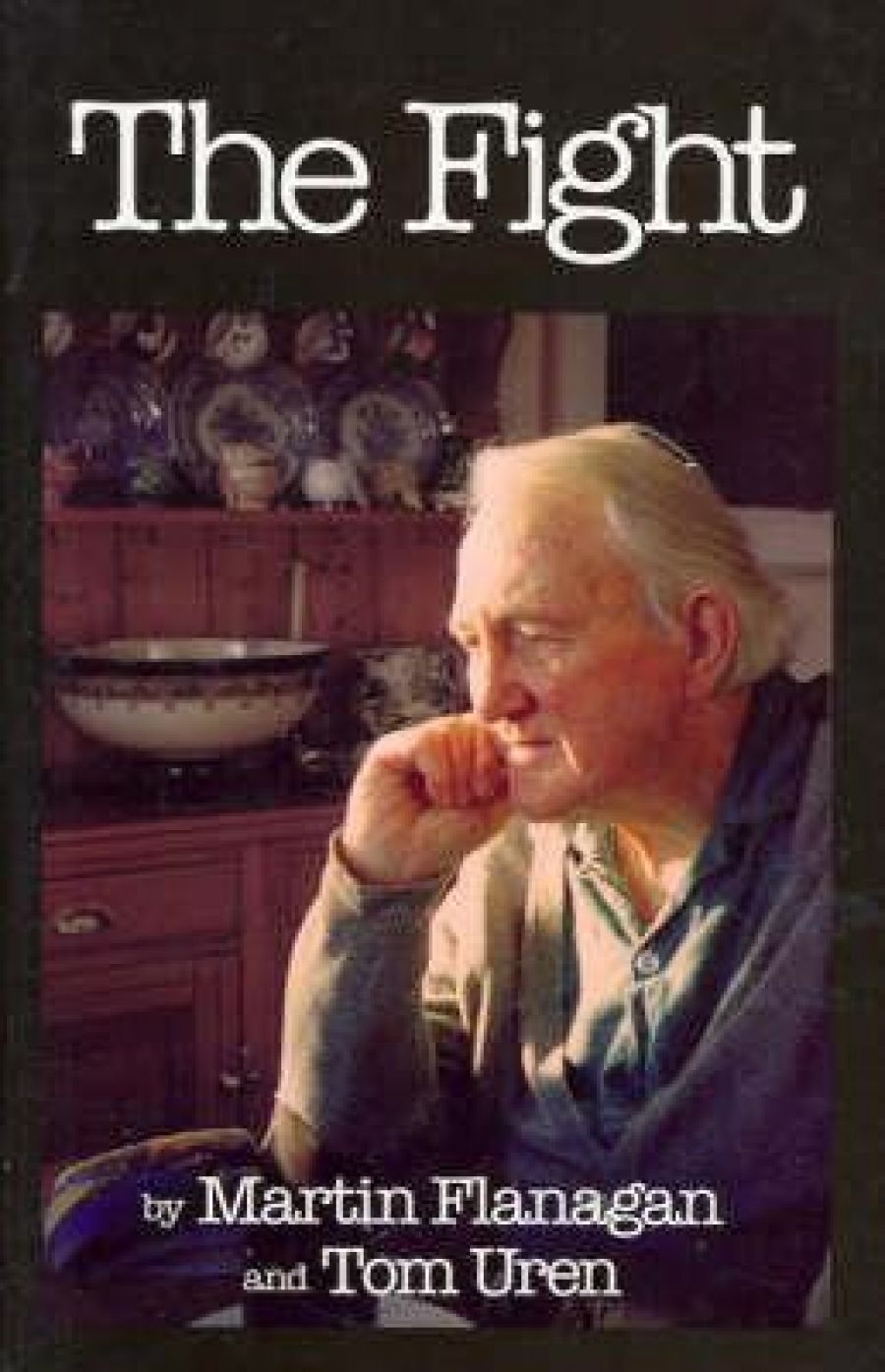
- Free Article: No
- Contents Category: Biography
- Custom Article Title: Nick Dluzniak reviews 'The Fight' by Martin Flanagan and Tom Uren
- Review Article: Yes
- Article Title: Nick Dluzniak reviews 'The Fight' by Martin Flanagan and Tom Uren
- Online Only: No
- Custom Highlight Text:
Tom Uren was a prisoner of war on the Burma Railway during World War II, a professional boxer in his youth and one of the dominant voices of the Australian left for much of the second half of the twentieth century. Martin Flanagan offers a wide-ranging reflection on Uren’s life, drawing on his experience growing up in the working-class Sydney suburb of Balmain to his days as minister for urban and regional development in Gough Whitlam’s government. In doing so, The Fight conveys the resilient and visionary spirit that was central to Uren’s character. But Flanagan’s stated purpose is much more than biographical; his aim is to show the need in contemporary Australian society for the passion and vision Uren displayed throughout his life.
- Book 1 Title: The Fight
- Book 1 Biblio: One Day Hill, $24.95 pb, 174 pp
This follows from Flanagan’s belief that modern Australia is essentially soulless: passive, indulgent and indifferent to the cause of social and moral progress. On the other hand the past – the time that Uren and Flanagan’s father lived through (both worked on the Burma Railway) – is a place where straight-talking, larger-than-life characters dominated, where the experience of life was tougher and more earthy, and where people were committed to community values and not merely to self-interest.
The curiosity is that in a book hoping to shape the future, Flanagan’s tone is overwhelmingly elegiac. In reference to one of Uren’s speeches, Flanagan writes: ‘What Tom had written was an appeal to the past, to a drama that was gone.’ The same could be said generally of The Fight. Interestingly, one of the few passages that suggests the potential and worth of the future appears in Uren’s own words. It is a remarkable statement of his political vision of the future, formed in a style of language that is seldom heard in contemporary Western politics. However, the overall impression left is of a world lost, rather than one that might be gained.


Comments powered by CComment